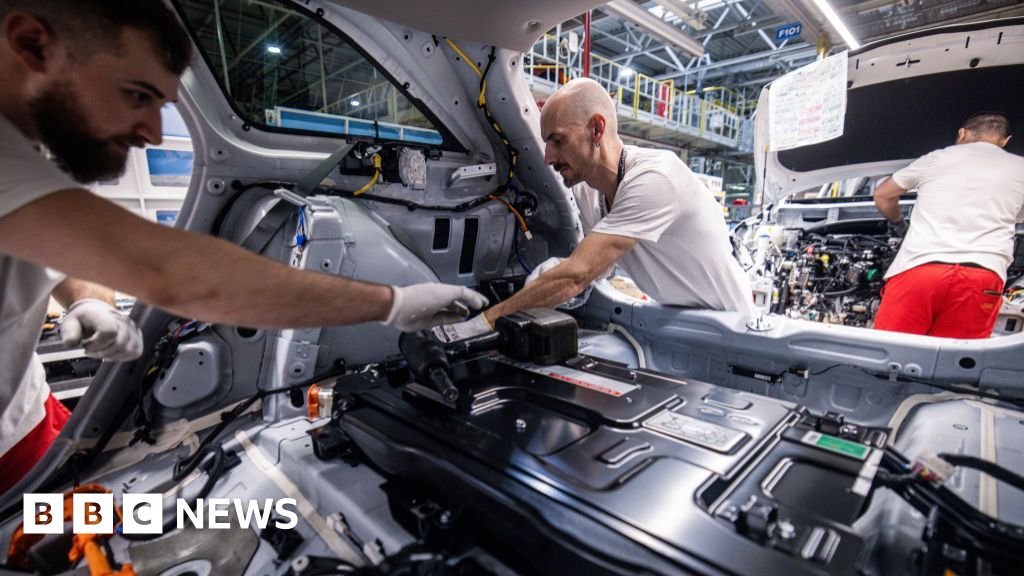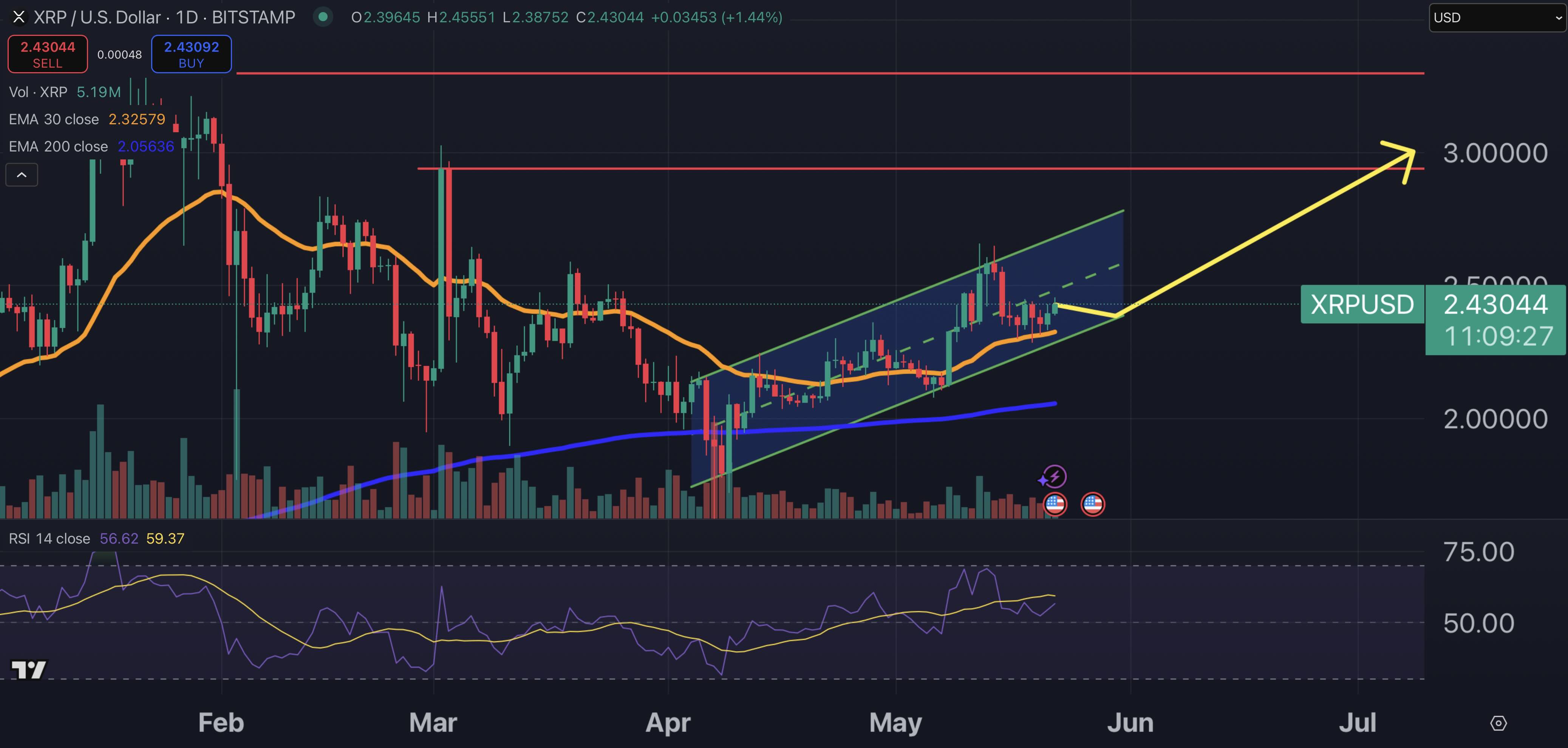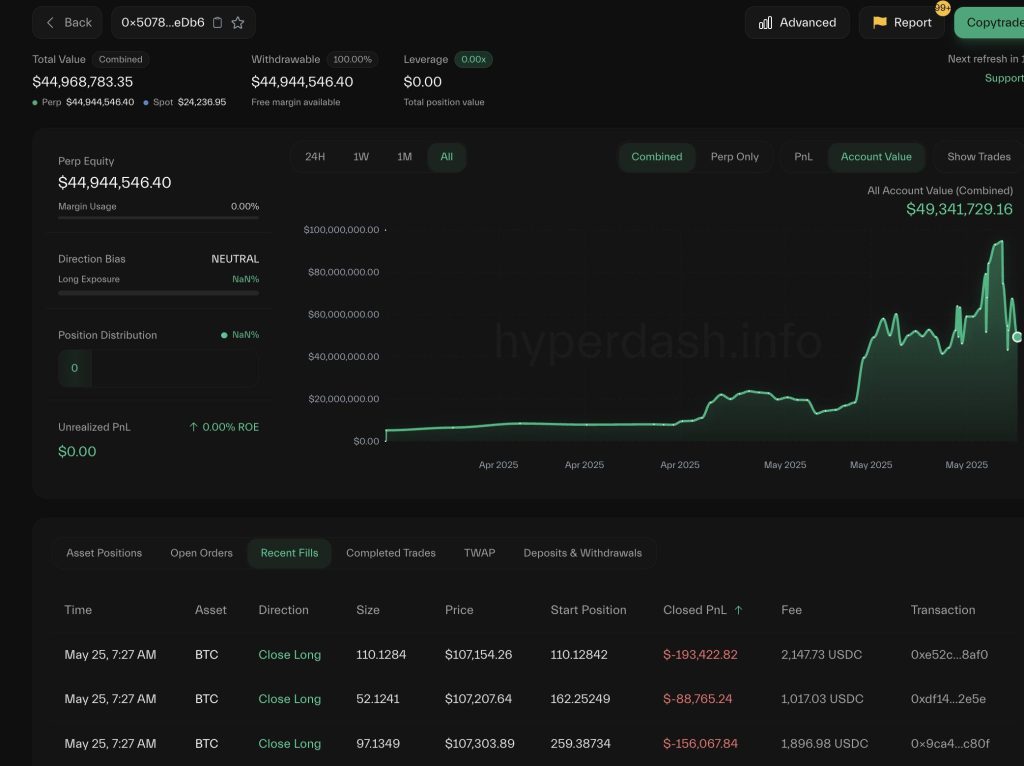The government proposed new rules Friday that could make it harder for electric vehicles to qualify for a full $7,500 federal tax credit, complicating efforts to meet President Joe Biden’s goal that half of new passenger vehicles sold in the U.S. run on electricity by 2030.
Plans outlined by the departments of Treasury and Energy would limit EV buyers from claiming the full tax credit if they purchase cars containing battery materials from China and other countries that are considered hostile to the United States.
The new rules, required under Biden’s signature climate law approved last year, are likely to slow consumer acceptance of electric vehicles just as Biden is trying to ramp up sales to help meet his goal to cut planet-warming greenhouse gas emissions in half by 2030. EV sales have tripled since Biden took office, but the U.S. still depends on foreign sources, especially China, for many of critical minerals needed to produce EV batteries.
It’s still not clear which vehicles would be eligible for the full $7,500 tax credit under the rules because the Biden administration has yet to publish any lists.
A ‘foreign entity of concern’
Congress included language in the Inflation Reduction Act that bars electric cars from qualifying for the full tax break if critical minerals or other battery components were made by a “foreign entity of concern.” The law defines that as any company that is owned by, controlled by or subject to the jurisdiction of North Korea, China, Russia or Iran, although the main target is China.
Administration officials said the auto industry has long been aware of the pending rules and has taken steps to develop auto-supply chains in the U.S and distance the industry from China, which has long dominated production and processing of minerals such as lithium and graphite used in EV batteries.
The White House hopes the new tax credit rules will encourage development of auto-supply chains in the U.S.
“Automakers have already adjusted the supply chain to ensure buyers are eligible for these credits and are continuing to do so,” Deputy Treasury Secretary Wally Adeyemo told reporters this week. “These changes take time, but companies are making the investments and Americans are buying these cars.”
Spurred by the climate law, carmakers such as General Motors and Hyundai, are racing to build U.S. factories to produce batteries and process materials like lithium. But they are still years away from being able to produce an electric vehicle without materials and components from China.
Adeyemo and other officials said the rules are intended to provide clarity following months of uncertainty over how strictly the administration would interpret rules on foreign entities of concern, sometimes referred to as FEOC.
“Clarity is exactly what we’re after with manufacturers in particular as they make major investments in EVs that are vital for the future growth of this important industry,” Deputy Energy Secretary David Turk said.
Asked how many cars that now qualify for tax credits will lose some or all of the credit next year, Adeyemo said the auto companies themselves “will determine which ones qualify” by their actions.
“These are sophisticated players,” Turk added, referring to the auto industry. Ford, GM and other U.S. companies ”are moving already” to boost U.S. supplies of batteries and critical minerals and will move further to comply in coming months, Turk said.
John Bozzella, president and CEO of the Alliance for Automotive Innovation, a trade group representing major automakers, said the transition to EVs “requires nothing short of a complete transformation of the U.S. industrial base. It’s a monumental task that won’t happen overnight.”
The Treasury Department’s guidance “recognizes the complexity of this task and the challenges facing automakers with some good balance. Day one verdict: Clarity for automakers. Finally,” he said in a statement Friday.
Sam Abuelsamid, a mobility analyst for Guidehouse Insights, expects many EVs now eligible for the full $7,500 tax credit will see that cut in half next year when the new regulations take effect.
Automakers can probably comply with a requirement that 60% of battery parts come from North America next year to qualify for a $3,750 tax credit, he said. But it will be much harder for them to get batteries with half their critical minerals from the U.S. or countries with which it has a free trade agreement, and it’s likely they’ll lose $3,750 of the credit.
Beginning in 2024, an eligible clean vehicle may not contain any battery components that are manufactured by a foreign entity of concern, the Treasury Department said. Beginning in 2025 clean vehicle must not contain any critical minerals that were extracted, processed, or recycled by a foreign entity of concern in order to qualify for a tax credit.
As a result, 2024 and 2025 are likely to be tough years for automakers to meet the battery content requirements, Abuelsamid and other analysts said.
To allow for credits to continue while the rulemaking process proceeds, the proposed rules would provide a transition period for EVs placed in service after Jan. 1, Treasury said.
While smaller tax credits and high interest rates could hurt EV sales, a new rule allowing tax credits to be applied at the time of sale might offset those problems, Abuelsamid said. Getting the tax credit upfront, rather than waiting until filing tax returns next year, “will actually reduce your monthly payment, which is a major stumbling block for consumers,” he said.
Customers also can lease an EV and get the full tax credit since they are classified under the law as commercial vehicles exempt from the North America manufacturing and battery-content requirements.
Joe Manchin pushed tough-on-China stance
Before the new rules were announced, Sen. Joe Manchin, D-W.Va., urged the Treasury Department to adopt the “strictest possible standards” to prevent Chinese-produced minerals or Chinese battery companies from winning electric vehicle tax credits.
Manchin, chairman of the Senate Energy and Natural Resources Committee, was a key author of the provision barring the full tax credit if battery components are manufactured or assembled by an FEOC such as China.
“China has routinely shown a blatant disregard for fair competition, unfairly leveraged state-sponsored investments, and wielded their market domination in key industries as a cudgel,” Manchin wrote in a Nov. 13 letter to Treasury Secretary Janet Yellen. China is currently responsible for nearly three-quarters of the world’s cathode production, 92% of anode production and 76% of lithium-ion battery cell production, Manchin wrote.
A spokesman for the National Mining Association welcomed the new rules as “an important step forward” to address China’s dominance of EV supply chains, but said more needs to be done to build secure and reliable mineral supply chains in the U.S.
“We simply need vastly more domestic mining and processing. We can’t catalyze secure, responsible supply chains if we don’t approve domestic mines,” spokesman Conor Bernstein said.
The complexity of the rules is shown by controversy over Ford Motor Co.’s plans to build a factory in Michigan that would employ about 1,700 people to make batteries for new and existing EVs. Ford says a wholly owned subsidiary would own the factory and employ the workers. But China’s Contemporary Amperex Technology Co. Limited, or CATL, which is known for its lithium-iron-phosphate expertise, would supply technology, some equipment and workers.
Administration officials declined to say whether batteries from the Ford plant would qualify for tax credits.
___
AP Auto Writer Tom Krisher in Detroit contributed to this report.
Credit: Source link










